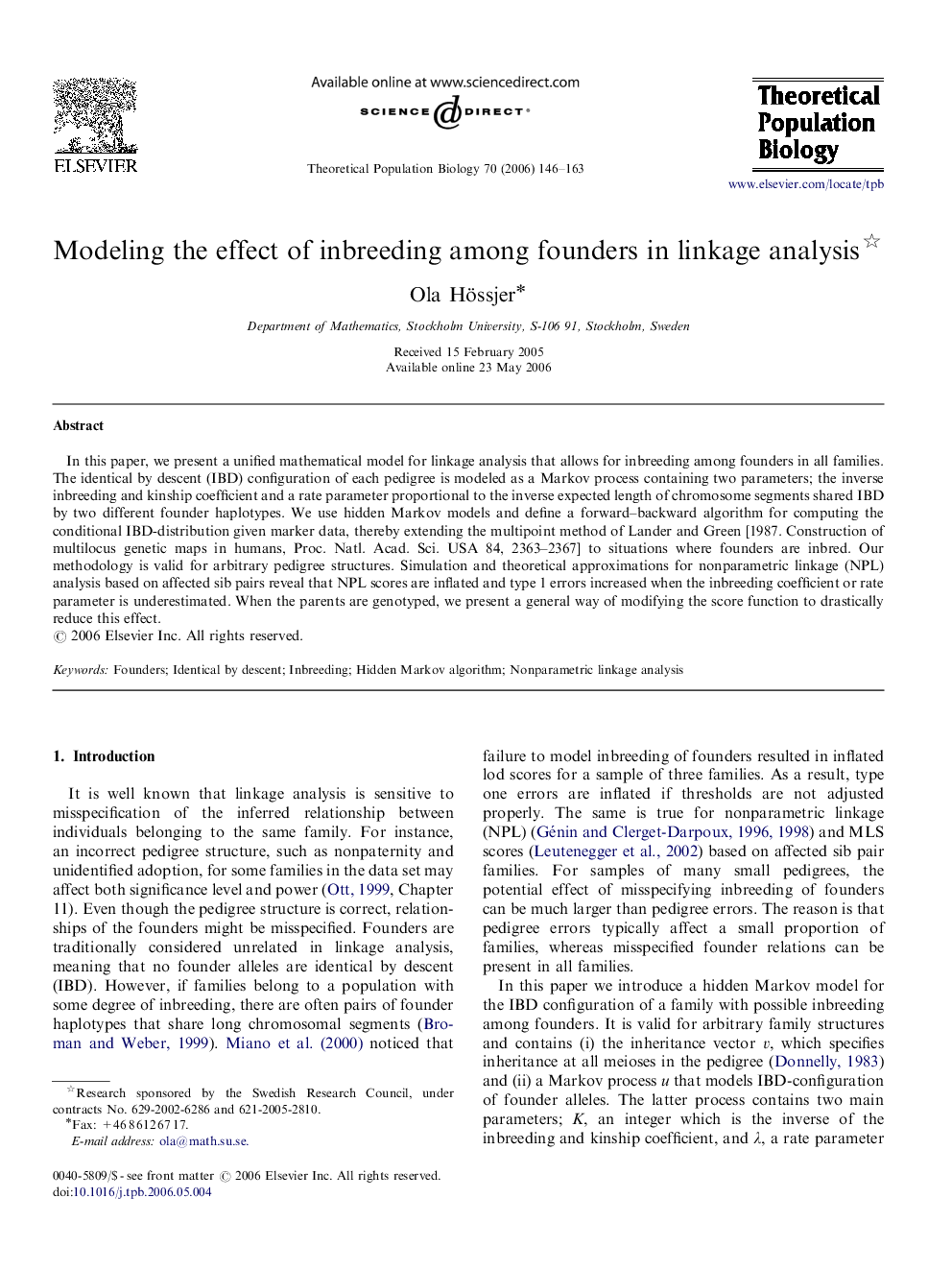| Article ID | Journal | Published Year | Pages | File Type |
|---|---|---|---|---|
| 4503011 | Theoretical Population Biology | 2006 | 18 Pages |
In this paper, we present a unified mathematical model for linkage analysis that allows for inbreeding among founders in all families. The identical by descent (IBD) configuration of each pedigree is modeled as a Markov process containing two parameters; the inverse inbreeding and kinship coefficient and a rate parameter proportional to the inverse expected length of chromosome segments shared IBD by two different founder haplotypes. We use hidden Markov models and define a forward–backward algorithm for computing the conditional IBD-distribution given marker data, thereby extending the multipoint method of Lander and Green [1987. Construction of multilocus genetic maps in humans, Proc. Natl. Acad. Sci. USA 84, 2363–2367] to situations where founders are inbred. Our methodology is valid for arbitrary pedigree structures. Simulation and theoretical approximations for nonparametric linkage (NPL) analysis based on affected sib pairs reveal that NPL scores are inflated and type 1 errors increased when the inbreeding coefficient or rate parameter is underestimated. When the parents are genotyped, we present a general way of modifying the score function to drastically reduce this effect.
